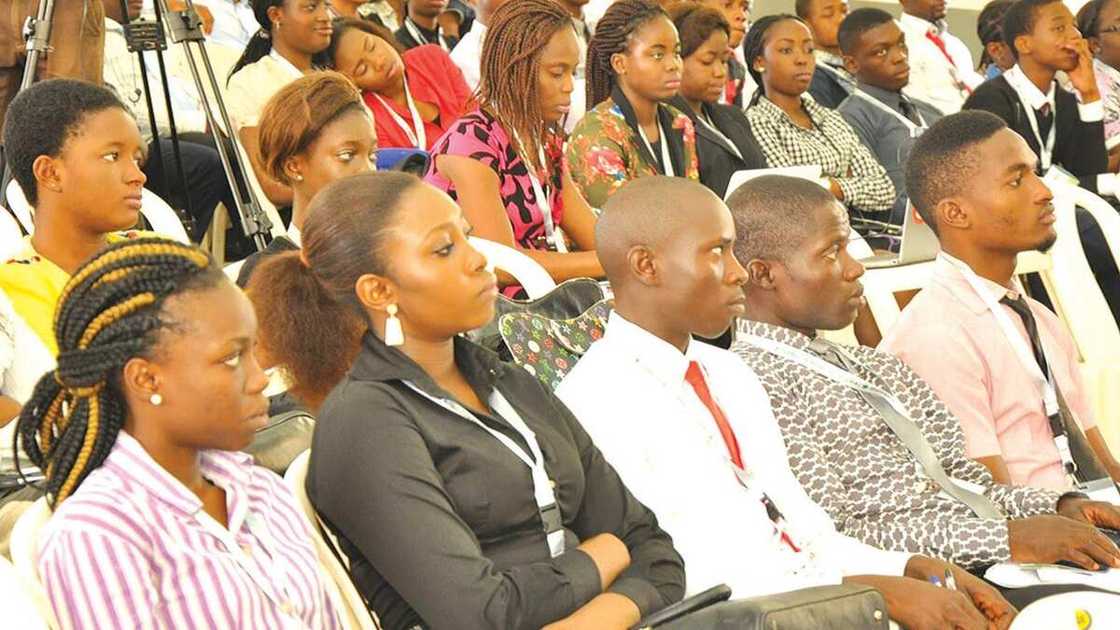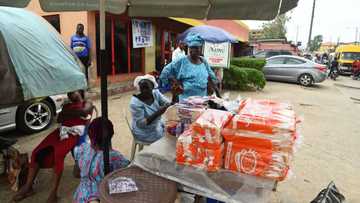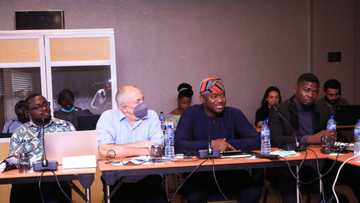Nigerian Youths to Be Trained on Financial Literacy for Socio-Economic Empowerment
- In 2014, a baseline survey conducted on financial literacy in Nigeria revealed that there is low awareness on the issue in the country
- It revealed that over 33 per cent of Nigerians do not have knowledge of what interest is while over 25 percent have never heard of a savings account
- A programme to address some of the gaps identified in the national survey, especially concerning youths, have been launched
Lagos - A financial literacy programme aimed at equipping the youth in Nigeria with the knowledge needed for socio-economic empowerment has been launched.
The programme unveiled by QNET, dubbed FinGreenemploys a train the trainers model, is geared towards ensuring that the information impacted is transmitted to the community for a more sustainable outcome.

Source: Depositphotos
Legit.ng gathered that FinGreenisis designed to impart critical financial management skills and knowledge by training young leaders drawn from various communities to become trainers and champions of financial literacy and economic empowerment among the youth.
In partnership with the implementation partner, Financial Literacy for All, QNET launched the programme on the occasion of the maiden training session which kicks off the pilot phase of the initiative.
PAY ATTENTION: Join Legit.ng Telegram channel! Never miss important updates!
Speaking during the launch, Sub-Saharan Africa Regional Manager for QNET, Biram Fall, said:
“Being financially literate today allows an individual to be better poised for certain financial roadblocks which, in turn, reduces the chances of personal economic distress.
“We developed this programme because sustainability is a core pillar of our values at QNET.
“We aim to make a long-lasting impact in the communities we operate in and looking at the growing youth population in the country, it is important to ensure that future and current generations have the requisite information needed to make empowered socio-economic decisions.
“FinGreen focuses on imparting knowledge not just to the pilot group but transmitting the same information to people in their spheres which causes a ripple effect in financial literacy.”
Speaking at the launch, Mr. Abiodun Ajisafe, QNETs partner said:
“We know that there is a hunger for economic empowerment among our people. Unfortunately, this hunger is often met with low levels of financial literacy that then leads to mistakes when making investments and financial decisions.
“It has also become imperative to protect consumers from unethical business practices and this is part of what FinGreen covers.”
Ajisafe further underscored the importance of early intervention in the sphere of financial education, adding that:
“In line with the National Financial Literacy Framework, the programme will contribute to the availability of role models and mentors for the youth to provide guidance on money management and navigation through the complexities of the financial sector.”
Expert says increased productivity will improve value of naira
In a related development, Dr. Okey Ikechukwu has said that only increased productivity and a change in consumption patterns of Nigerians will shore up the value of the naira.
He made the statement at a one-day roundtable on national issues organised by Development Specs Academy in Abuja.
Dr. Ikechukwu, however, noted that the Central Bank of Nigeria, CBN, has made several policy interventions to improve the value of the national currency.
New initiative launched in Nigeria to inspire changemaking among youths
A global organisation that supports the world's leading social entrepreneurs, has officially launched the “Everyone A Changemaker” Movement in Nigeria.
Promoters of the organisation known as Ashoka, say the EACH movement will be implemented in six metro areas in Nigeria, including Lagos, Abuja, Enugu, Port Harcourt, Kaduna, and Yola.
Legit.ng gathered that a changemaker city or metro area is a connected ecosystem of influential institutions, leaders, and actors in a region, who are collaborating and co-creating innovative strategies that foster and support the next generation of changemakers in their communities.
Source: Legit.ng





